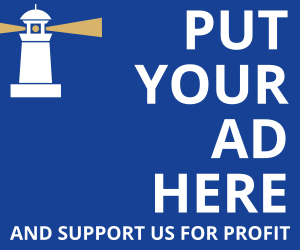
Central banking system:How Monetary Absurdity Has Become the New Normal
Faith-Based Economics
Governments are really rather good at creating self-defeating policies and regularly prescribing cures that kill the patient. They fail to grasp the big picture, they cannot or will not comprehend the idea that the economy is a living, complex organism and not merely the sum of mechanical parts. Without fail, not-so-great ideas of not-so-brilliant minds create perverse incentives in the markets and breed unintended consequences, which in a slap-stick kind of way end up making the problem worse than it was when they so confidently decided to fix it. But the most profound blunders, or criminal decisions, depending how generous one wants to be when evaluating the state’s intentions, mostly involve playing dice with the very basis of our economic lives, money itself.
Our monetary system got its heart ripped out back in 1971, when US-President Nixon decided that nobody needs a scarce resource as backing for an otherwise worthless piece of paper, because faith alone can sustain the world economy. And as it turned out, he was right: people kept buying houses, cars and even gold, ironically, in exchange for processed tree corpses with a government stamp on them; life went on, the wheels kept turning and our societies did not collapse under the weight of this absurdity. Then, slowly but surely, our financial transactions and the entire economy migrated to electronic banking platforms. As a result, today, we don't even have little bits of paper to act as physical faith aids; we only have ones and zeroes and our imagination.
So knowing this, why do we continue to be astonished when our dear leaders, especially the unelected ones, decide to bend some more laws of economics and twist common sense? Of course we can have negative interest rates, if Mr. Draghi and his council of wise elders decreed it to be so. Of course we can have QE, bailouts, of course we can create and inject new money into the economy at will. What’s to stop us adding a couple of zeroes here and there, to magically solve all our problems?
“The system works”?
When Nixon unpegged the US-Dollar from gold, there were those that sternly warned against it. “The economy will collapse”, they said. “If money is worthless, the people will revolt”, “We’ll have riots on the streets”, they solemnly prophesied. Nothing of the sort happened. If you talked about negative interest rates 10 years ago, anyone would think that the sky would fall and crush us all and that it would rain frogs and locusts from the heavens above. It didn’t. Yes, the economy is crippled and yes, it is on life support, but the long overdue end of the world hasn’t come. The house of cards still stands and many would have us believe that this is proof that “the system works.” Badly, asthmatically, with incalculable collateral damage, but it still works. Why, rather than how, it hasn’t collapsed yet, is the more interesting question.
I came across one possible explanation at a social gathering a couple of years back. I had the pleasure of enjoying an evening of casual chit chat with a pseudo-diverse group of professionals, all representative members of what we might once have called the middle class: a general physician, a real estate agent, an elementary school teacher. The subject revolved around politics and the economy, and at some point I mentioned the fractional reserve system to my interlocutors. Their surprise that such a thing could be true, was only overshadowed by my own, as I stood astonished by their astonishment. That shock prompted me to look up some stats and facts about the financial literacy and numeracy of the general population. If people still think banks are fully backed, what else haven’t they heard about?
A global knowledge deficit
As it turns out, they haven't heard about a whole lot of things; all of them quite crucial to the very existence of the entire economic edifice. Here’s a concise and pertinent example from the U.S.: a Reuters/Ipsos survey found that only 27 percent of the country’s adults could correctly pick the correct definition of quantitative easing from five possible answers. But then again, that’s Americans, the same population of which only 34 percent know that the boiling point of water changes with altitude, according to a 2015 Pew Research poll. Surely, as the cliché goes, we must be much more sophisticated in Europe, right? Wrong.
A recent PWC survey, using a sample from ten EU countries, shockingly found that 2 out of 3 respondents “don’t feel that they understand the state of public finances” and find the information “difficult to assess.” So it appears that most Europeans cannot decipher their countries’ budgets or evaluate their governments’ financial policies, but what is their level of understanding of their own, personal finances? According to a Standard & Poor's global survey of financial literacy, 48 percent of Europeans have no grasp of basic financial concepts.
In fact, the same survey, which included more than 150,000 subjects from more than 140 countries, revealed that the situation is dire everywhere: Two-thirds of adults worldwide are financially illiterate. Here is a taste of the kind of questions that the majority of the human race failed to answer correctly: “Suppose you have some money. Is it safer to put your money into one business or investment, or to put your money into multiple businesses or investments?” and “Suppose you need to borrow $100. Which is the lower amount to pay back: $105 or $100 plus three percent?”
What you don’t know can hurt you
The problem has serious and far-reaching effects. First, it debilitates the financially illiterate individuals, as they are unable to plan their futures and make sound decisions and investments with their money, efforts and time. More often than not, it leads to indebtedness, failed businesses, wasted talent and potential and it perpetuates the cycle of inequality and poverty.
However, it also harms others too. In our democratic societies, arguably the most critical issue that voters are called upon to decide is the future economic policy direction of their country. Pre-election speeches are typically loaded with misleading and oversimplified answers to complex economic problems, promoting crowd-pleasing policies and promising prosperity for all. It only takes basic accounting and arithmetic skills to see that such proposals are unsustainable and that there really is no such thing as a free lunch, but what if the average voter lacks these skills? Well, then we find 64 percent of Europeans supporting Universal Basic Income and 66 percent of US millennials supporting socialism, while only 16 percent of them can define what socialism is, as recent polls revealed.
Aggressive economic and monetary policies, including QE, negative interest rates, money-printing schemes, no matter how absurd, will continue to be propagated by our governments and central banks, until the body politic has both the skills and the willingness to challenge their absurdity. Indeed, helicopter money might, even literally, fall from the skies, as long as nobody knows, or cares, where it’s coming from. This system, backed by unrealistic promises and fueled by recklessness and irresponsibility, will continue to be our “new normal,” until we put an end to it; or until it implodes and puts an end to us.
Originally written for Smart Investor, 12/2016




